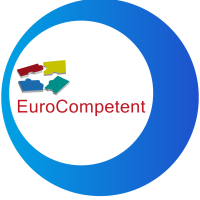
How students learn - What can Neuroscience Teach Us about Teaching?
The course is based on addressing methods and strategies to help student become active learners and how to take advantage of the natural human attention span, how to use studies about memory systems to inform lesson planning, and how to use research on the role of emotions in learning.
Description
There are very specific aspects of learning that are dependent on neurogenesis, such as spatial learning and emotional memory. Newly generated neurons are recruited into existing networks, strengthening or developing pre-existing connections in the brain. Behaviors and conditions that influence plasticity and neurogenesis include sleep, nutrition, exercise, stress (cortisol levels), and happiness (dopamine levels). For example high levels of stress tend to correlate with low performance — but low levels of stress also correlate with low performance. A moderate amount of stress results in the highest performance. What is the “moderate amount,” amount of stress, then, to achieve active learning. Applied to teaching it includes implementing the “Mind, Brain and Education” (MBE) principle, and using various techniques in the classroom, like the i-clickers, multiple ways of presenting an important point, taking a break in a long class, encouraging a variety of forms of class participation,
Learning objectives
- Understand the principles of MBE
- Distinguish elements influencing students` learning styles
- Identify executive functions (planning or predicting, attention and object processing) dynamically activated to enhance performance.
- Understand the efficacy of tools like Bloom’s taxonomy which describes cognitive tasks in ascending orders of complexity.
- Volitional Exploratory Behavior as key element for Acttive learning
- Understand the role of stress for in students` performance- he stress response — popularly known as the “fight or flight” response and “moderate amount of stress
- Use personal experience to design entirely new personalized activities/materials like the i-clickers, multiple ways of presenting an important point, taking a break in a long class, encouraging a variety of forms of class participation, using music, presenting questions in a context that is personally relevant to the student (for example, phrasing questions in the second person), and encouraging students to be physically ac
Methodology & assessment
Assessment will be carried out prior to the course by means of analysis of participants’ interests, and designing learning scenarios for the particular class each participant works in.
Materials, digital tools & other learning resources
Materials include articles. worksheets, copies of introduced good practice examples, video materials, presentations and links to useful
Certification details
The certificate of attendance issued by the provider contains duration of the course, number
of lessons attended, topics covered, skills and competencies obtained, name and reference
number of the project, location, name of the expert in charge, signature of the legal
representative of the provider and stamp..
If requested - a Europass Mobility Certificate will be issued.
We provide participants with help in completing Learning Agreements, as well as any documents necessary for their organisations
Pricing, packages and other information
-
Price:400Euro
-
Course package content:
The indicated price covers only course fee, intercultural activities and tickets will be arranged with participants on their demand and needs.
-
Additional information:Description of the services and activities included in the course package (such as accommodation, meals, transport) or available at extra cost.
-
Cancellation & changes:
Free cancellation can be accepted at least 4 weeks before the course or in the case of force mayor.
-
Additional information:The options and conditions for change and cancellation, and the policy in case of unforeseen circumstances (force majeure).
Additional information
-
Language:English
-
Target audience ISCED:Primary education (ISCED 1)Lower secondary education (ISCED 2)Upper secondary education (ISCED 3)
-
Target audience type:TeacherHead Teacher / Principal
-
Learning time:25 hours or more
Upcoming sessions
Past sessions
More courses by this organiser

Sustainable development goals and active citizenship




